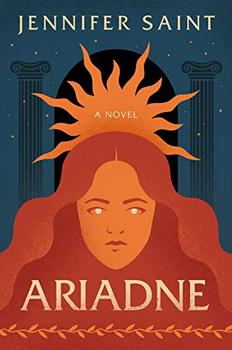Ariadne definitely benefitted from the example of her mother, who was very involved in her life prior to the birth of the minotaur. While the rest of Crete seemed disgusted by him, Pasiphae devoted herself to nurturing him- as he was another innocent victim of the gods. Phaedra was too young to have strong, positive memories of her mother before Minos banished her son to the labyrinth. She was also not interested in bonding with her brother.
I think the fact that Ariadne had a choice made a difference in some ways. She chose not to go through with the marriage arranged by her father by betraying not only her brother, but the entire kingdom. Phaedra was not given a choice. She lost her mother, her sister, and then her home. She must have been very lonely, and at 12, in desperate need of continued guidance and mentoring from someone she trusted and loved. While marrying Theseus may have seemed appealing at first- -he was so handsome after all; it didn't take long to discover that he was a liar, a cheater, a rapist, and a fraud. Every man Phaedra had known had let her down or abandoned her somehow. Her resentment may have passed on to her children who she assumed would be more influenced by their father. I wonder if Phaedra would have responded differently if she had a daughter... Although I agree with ashleigh, Phaedra obviously suffered from post partum depression. The one thing she found that brought her joy, running Athens, would take a backseat to raising mini Theseuses.
I do think that Ariadne was also uplifted by the women- -maenads- -who lived with her on the island. While she never felt comfortable joining them, Ariadne was well aware of the strength they possessed in terms of not remaining quiet or subservient to men. She drew from that in order to be the best version of herself.


